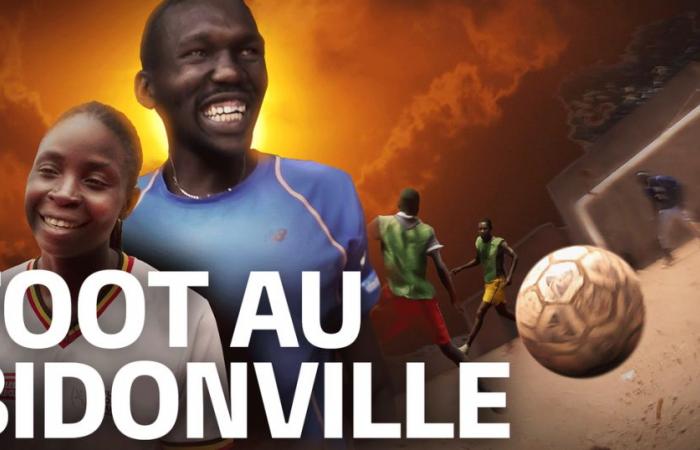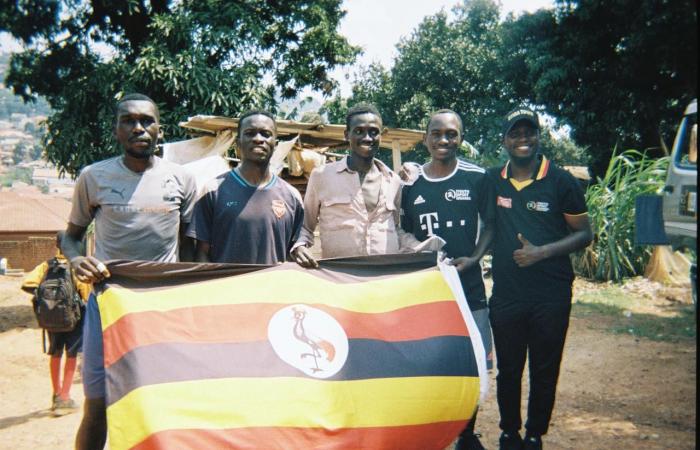Uganda is participating in the Homeless World Cup for the first time. The team is made up of eight young people from the Acholi slum, located in the capital Kampala. These young people traveled to South Korea to represent their country in this international competition. In partnership with En Quête d’Ailleurs, an RTS team met them in August during their last training sessions in their neighborhood.
External content
This external content cannot be displayed because it may collect personal data. To view this content you must authorize the category Social networks.
Accept Plus d’info
The Homeless World Cup is much more than just a street football tournament: it is a World Cup dedicated to people living in extremely precarious conditions. Each country is represented by an association which supports these people. Given the varied socio-economic contexts, player profiles differ considerably from one country to another.
Founded in 2003 by Mel Young and Harald Schmied, the Homeless World Cup uses football as a lever for social change. This global tournament highlights the diversity of life paths and offers participants a unique opportunity to escape from their daily lives, while raising public awareness of often overlooked social issues.
Street football is a simplified version of traditional football, played on urban or improvised pitches. The rules vary from location to location, but generally teams consist of 4 to 6 players.
This year, nearly 500 players from 49 different countries are participating in the competition in Seoul. On-site costs, including accommodation, food and organization, are covered by the host country, South Korea, as well as the organization of the Homeless World Cup. However, travel costs and expenses related to tournament preparation are the responsibility of each participating country.
Players marked by the civil war
Uganda, a country in the Great Lakes region, has experienced several conflicts in recent decades. Bordered by the Democratic Republic of Congo (DRC), Rwanda, South Sudan and Kenya, it faces complex geopolitical challenges.
In recent years, Uganda has become one of the main host countries for refugees in Africa, with almost 1.7 million refugees in 2023, mainly from South Sudan and the DRC, data shows of the United Nations Refugee Agency. The country also has to manage a large population of internally displaced people, including the Acholis, a community originating from the Gulu region, in the northwest of the country. This region was deeply affected by a civil war that lasted more than 20 years, forcing many families to flee.
In order to give hope to displaced young people, the Youth Sport Uganda association uses sport as a tool for resilience. This year, she formed a team of eight young Acholis to compete in the Homeless World Cup in South Korea.
In 2023, Uganda’s gross domestic product (GDP) is estimated at around US$46 billion, while that of Switzerland reaches around US$900 billion, illustrating the economic contrast between the two nations.
A 65-year-old Swiss goalkeeper
In Switzerland, the situation is different. The team is mainly made up of people who are beneficiaries of disability insurance (AI) or affected by unemployment. The selection and organization of the team is managed by the Surprise association, based in Zurich. This association carries out various activities, including the organization of the Street Football World Cup.
Among the players on the Swiss men’s team, the 65-year-old goalkeeper works as a street newspaper seller, traveling between Zurich and Graubünden. Switzerland also fields a women’s team in the competition.
TV report: Camille Lanci, Erwan Jagut
Adaptation web: Marc Gagliardone







